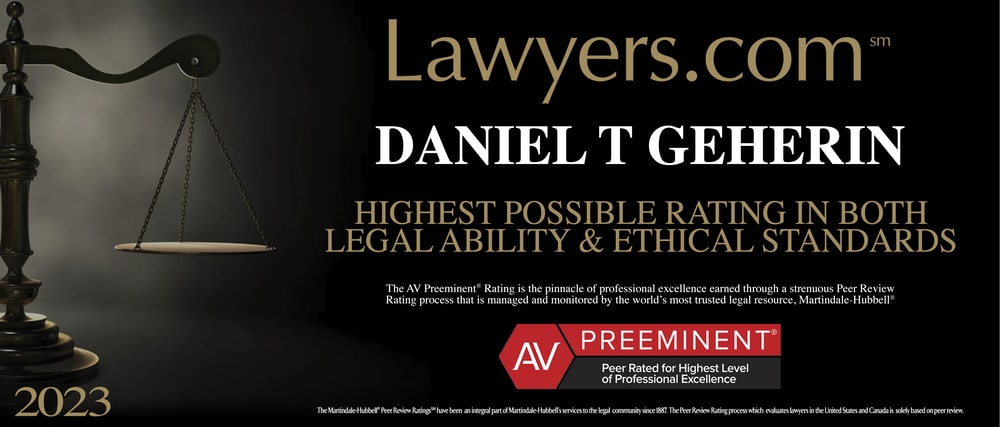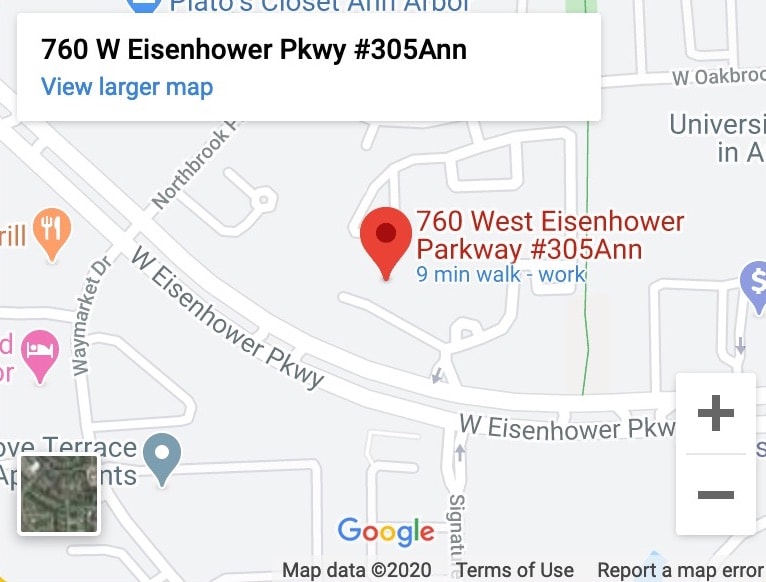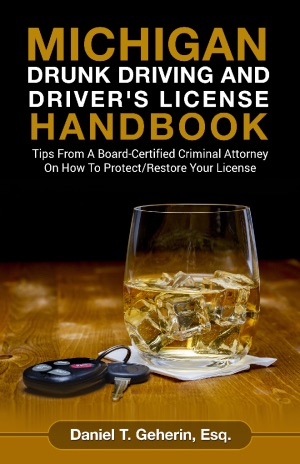What is a “Substance Abuse Evaluation”?
If you’ve been convicted of multiple drunk driving offenses, especially in a short period of time, your Michigan Driver’s License has likely been REVOKED. This means you must apply for the reinstatement of your license, and must jump through several “hoops” to get your license back. The first step in the reinstatement process—and perhaps the single most important “hoop” to jump through—is getting a Substance Abuse Evaluation (“SAE”) done.
An SAE is a written document (Forms 257/258, found online here) completed by a licensed and trained substance abuse therapist following interview(s) with a license applicant. This document is done in conjunction with a drug and alcohol urine test to determine whether the applicant is completely clean and sober.
Daniel T. Geherin, founder of MiLicenseLawyer.com, has been a board-certified drunk driving defense attorney and license appeals specialist for over 20 years. He’s conducted over 1,500 substance-abuse license reinstatement hearings at the Michigan Secretary of State, and has appeared before every Hearing Officer on countless occasions. His clients come from all over the State of Michigan, and all over the country. Because of this, he has helped reinstate over 300 Michigan licenses in the last decade alone.
At MiLicenseLawyer.com, we consult with you to explain every step of this complicated process. We provide you with outlines, forms, and referrals to begin the application procedure. As for the SAE, we have relationships with licensed therapists throughout the State of Michigan to whom we may refer you for this evaluation.
Important points to remember about the SAE:
First, it must be a true SUBSTANCE evaluation, and not just an ALCOHOL evaluation. Too often, inexperienced therapists only assess an applicant about his or her drinking history, and fail to address past controlled substance and marijuana usage. This is often fatal for the applicant’s chances at reinstatement.
Second, it must include and attach all testing instruments used in the assessment, including the toxicology screen (with proper variables) and any MAST/SASSI scoring information.
Third, it must provide detailed information about the applicant’s abstinence, relapse and treatment history. An SAE lacking in this information is often discredited (or even disregarded), resulting in a denial for the applicant through no fault of his or her own.
Fourth, it must provide both a proper diagnosis and prognosis for continued sobriety. If that prognosis is Good, Very Good or Excellent, the applicant has met her initial burden, and then the focus shifts to her testimony and other evidence. Conversely, a Fair, Guarded or Poor prognosis is a fatal blow to the applicant’s chances, regardless of their testimony or other evidence.
Without question, a recognized and respected therapist can often mean the difference between driving again and waiting another grueling year to begin the application process anew. So, it is extremely important that the applicant consults with an experienced and specialized driver’s license restoration specialist for guidance on the process in general, and the SAE step in particular.
For a free consultation about the license restoration process in Michigan, please call (734) 263-2780, or schedule online.
MiLicenseLawyer.com: We are the key to putting you back in the driver’s seat.



















